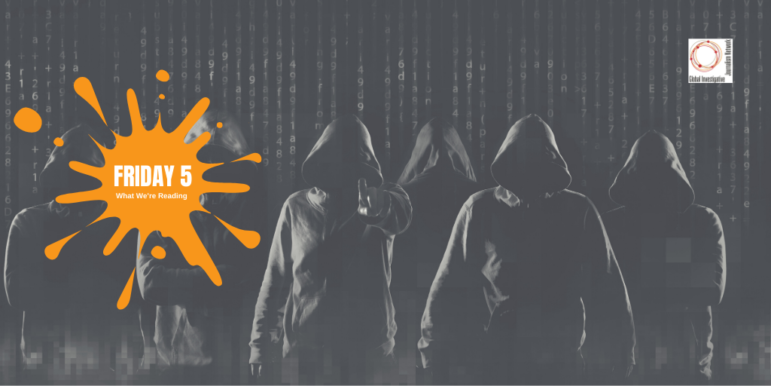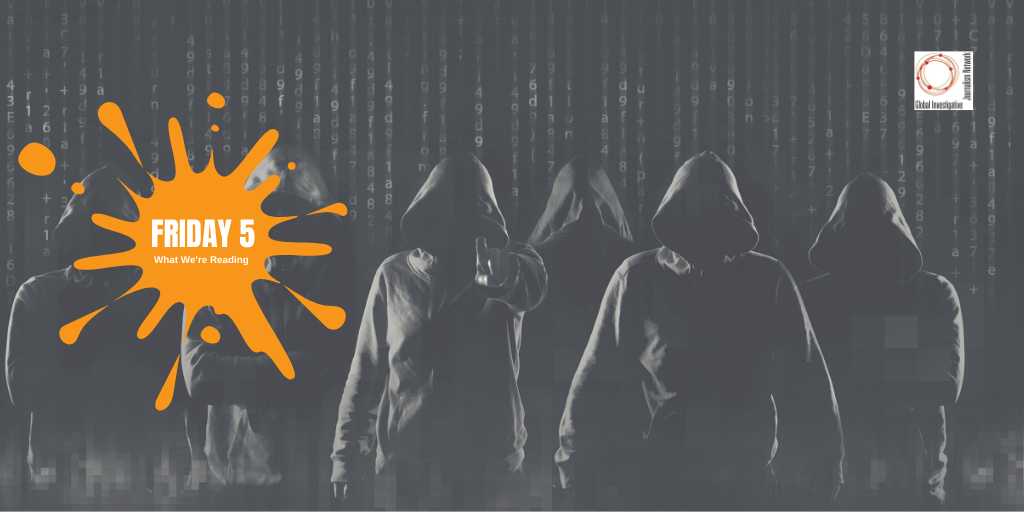

What We’re Reading: Mapping Counter Influence Ops, Russian Media Goes After Putin, Signal’s New Group Calls

For this week’s Friday 5, where GIJN rounds up journalism news from around the world, we’re reading about a new database of global counter-influence operations, the Russian media groups taking on President Vladimir Putin, and Signal’s new group calling feature.
Mapping Worldwide Initiatives to Counter Influence Operations (CEIP)
Through the Partnership for Countering Influence Operations, the Carnegie Endowment for International Peace has launched a database of global counter-influence operations, most of which are based in North America or Europe. Its initial catalogue of 460 initiatives — nearly half of them housed in civil society organizations, including think tanks, NGOs, charities, and other nonprofits — builds on the work of the Credibility Coalition’s CredCatalogue, RAND’s list of tools for fighting disinformation online, and the DisinfoCloud list of tools. The dataset categorizes initiatives by location, type of organization, and focus area, and includes a brief self-description of each group.
Russia’s New Guerrilla Media Going After Putin (Bloomberg)
This piece by Bloomberg Opinion writer Leonid Bershidsky offers a fascinating look into the new media landscape in Russia, including Proekt as well as IStories, a collective of investigative journalists led by journalist Roman Anin, who was involved in reporting on the Panama Papers. Bershidsky writes that it was Proekt that “fired the first shot” at Russian President Vladimir Putin with its report about Svetlana Krivonogikh, who went from being a cleaner to wealthy power broker, and whose daughter, born in 2003, looked “remarkably like Putin” — at a time when he was still married to the mother of his two previously-known daughters. Putin’s press secretary has called them “an information attack” and said that “we know more or less who organizes this activity, this work.”
Signal’s New Feature: Secure Group Calls (Signal)
Earlier this week, Signal — the go-to messaging app for many journalists — launched group calls. Like the messaging app, the calls are free, private, and end-to-end encrypted. When users open a group chat in Signal, a video call button will pop up; when the call starts, the group will receive a notification that the call has started. To begin using the new feature, update your app to the latest version. Group calls are currently limited to five participants, but the company says it is working toward allowing more participants.
Case Studies on the Intersection of AI and Journalism (LSE)
The London School of Economics and Political Science has collected a selection of case studies of creative applications of AI in journalism. To help support understanding of the growing use in media for journalists, academics, and researchers, the studies are divided into categories: ethics, diversity, and comment moderation; newsgathering and AI-powered investigations; news distribution and personalization; newsroom AI strategy; news production and automation fact-checking and misinformation; AI education and training; and research and innovation. Have a great example of an AI app for journalism? Send it to the LSE to help expand the list.
Building Content Audit Tools for Local Newsrooms (Lenfest Institute)
With $300,000 in funding from the Google News Initiative’s Innovation Challenge, the Lenfest Local Lab, the Brown Institute, and The Philadelphia Inquirer are collaborating to “build and test machine learning-based tools” to help newsrooms “analyze equity and representation” in local coverage. The goal of the open source tool is speed up manual audits to “reveal strengths and weaknesses” in content, “assess the equity and representation of past news coverage,” and gain insights that allow the media “to better serve, reflect, and include communities.”
 Tanya Pampalone is GIJN’s managing editor. The former executive editor of the Mail & Guardian and head of audience development at the African arm of The Conversation, Tanya contributed to Southern African Muckraking and Unbias the News. She created One Night in Snake Park, a six-part podcast and in-depth investigation on xenophobic violence in South Africa.
Tanya Pampalone is GIJN’s managing editor. The former executive editor of the Mail & Guardian and head of audience development at the African arm of The Conversation, Tanya contributed to Southern African Muckraking and Unbias the News. She created One Night in Snake Park, a six-part podcast and in-depth investigation on xenophobic violence in South Africa.








